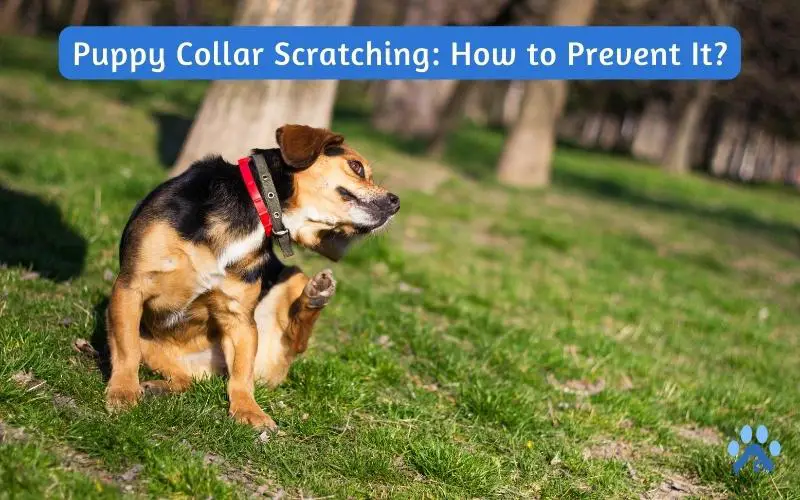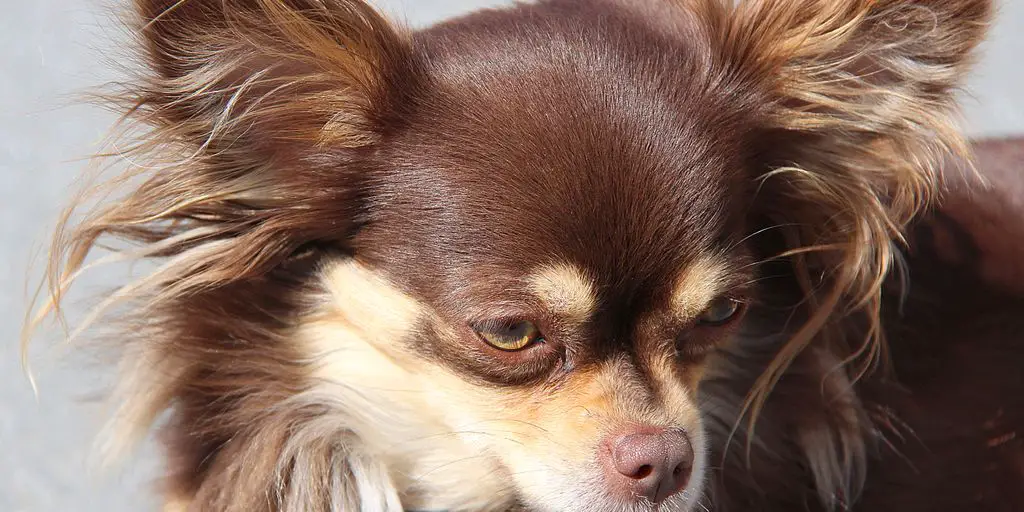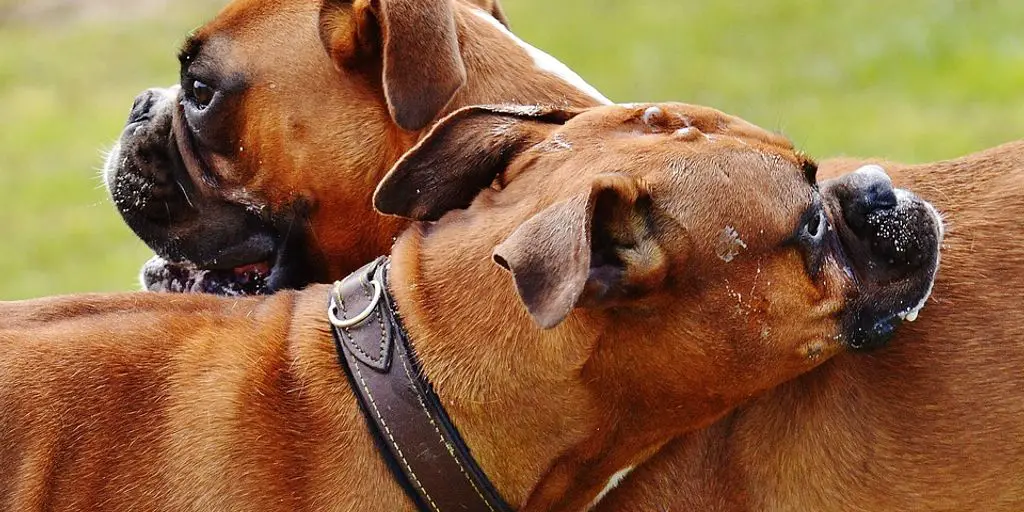Puppy collar scratching can be a common issue for pet owners, particularly if they have not selected the right collar for their pup.
Therefore, selecting a collar that fits properly, is made of soft and comfortable material, and is appropriate for your pet’s age, size, and activity level is important.
This can reduce the chances of your puppy collar scratching, rubbing, or otherwise becoming uncomfortable with its collar.
Additionally, there are other measures pet owners can take to ensure their puppy is not affected by collar scratching.
In this blog post, we will examine those measures and explore why a proper selection of a puppy collar is so important.
Here’s all you need to know,
Potential Causes for Puppy Collar Scratching
There are many potential causes for a puppy to scratch its collar, and it is important to identify the cause to treat the problem effectively. Possible causes include allergies, boredom, discomfort, and even pest or bacterial infections.
Allergies are a common cause of collar scratching in puppies. Your dog may begin scratching when it becomes allergic to something in its surroundings, such as grass or pollen. If you suspect this is the case, try switching to a different type of collar made from hypoallergenic materials.
Boredom can also lead to collar scratching in puppies. If your puppy lacks mental stimulation or physical exercise, it may start scratching at its collar out of boredom. Therefore, ensure your puppy has plenty of toys and opportunities to run and play.
Discomfort is another possible cause of collar scratching. If your puppy’s collar is too tight or irritates its skin, it may start scratching at it to relieve the discomfort. Check your puppy’s collar regularly to ensure it fits properly and does not seem to be causing any irritation.
Another potential cause is infestation with fleas and ticks. If your puppy has an infestation of these pests, it can experience excessive itching and scratching. In fact, bacterial infections and skin conditions such as eczema can also be contributing factors.
If you suspect your puppy’s collar scratching is caused by one of these things, it’s important to speak with your veterinarian about treatment options.
Key Measures to Take to Prevent Your Pup from Scratching Its Collar
Pet owners often encounter the issue of their pup scratching and biting at their collar. Not only does this lead to discomfort for the pup, but it can also cause damage to the collar, leading to costly replacements.
Thankfully, there are some key steps and measures you can take to help prevent your pup from scratching at its collar.
1. Regularly Check for Tightness
A key measure to take to prevent your pup from scratching its collar is to check for tightness regularly.
While you should be careful not to make the collar lose, it mustn’t be too tight. If the collar is too tight, your pup will be more likely to scratch it for relief.
To check if the collar is too tight, you can place a finger between the collar and your pup’s neck – if you can fit two fingers between them, the collar is good. If it’s too tight, then adjust accordingly.
2. Keep It Clean
Another key measure to prevent puppy collar scratching is keeping it clean. Dirt and bacteria can accumulate on collars over time, which can cause discomfort and skin irritations.
So, regularly wipe the collar with a damp cloth or antibacterial wipes. This will assist in getting rid of any dirt or debris that can trouble your dog.
Additionally, ensure that you dry the collar thoroughly after wiping it down so as not to create a damp environment that could lead to further irritation.
3. Inspect for Damage
One of the other important measures is to inspect the collar regularly for damage. Collars are made of leather and metal, susceptible to wear and tear over time.
If left unchecked, this wear and tear can lead to ragged edges or sharp points, which will undoubtedly cause discomfort for your pup.
Look out for signs of wear and tear, such as fraying or bends in the material, and replace collars when necessary to ensure your pup’s comfort and safety.
4. Familiarize Collar Usage With Your Pup
Familiarizing your pup with its collar can help prevent it from scratching and make it easier for them to wear it.
Put the collar on your dog for brief durations initially, and then progressively lengthen the time it stays on.
Also, avoid using collars with multiple tags or decorations that irritate the pup’s skin. If the pup still scratches at its collar, distract them with a toy or treat and reward them for not scratching.
5. Collar Usage Time
Lastly, owners should pay attention to how long a collar is worn and remove it at night to allow the pet’s skin to breathe. These preventive measures can help ensure pets stay comfortable and free from irritation.
However, if all else fails and your dog scratches its collar continuously, consider investing in a durable nylon or nylon-webbing collar. These are less expensive and less likely to damage than leather collars, so they may be worth considering if your dog is just too persistent in its scratching!
Choose the Right Collar to Prevent Puppy Collar Scratching
Many pet supplies stores offer specialized collars and harnesses designed with comfort in mind. These products are typically made from softer materials such as neoprene or Lycra, which are gentle on your pup’s delicate skin.
Additionally, these collars often come with adjustable features that allow you to customize the fit for maximum comfort and security.
If you’d prefer a more traditional option, there are also options like rolled leather or nylon collars which provide the same level of security while remaining soft against your pup’s fur.
For those who prefer the look of a classic buckle collar but still want to avoid any potential discomfort, try a martingale-style collar designed to tighten if your pup pulls or tries to escape.
Both rolled leather, and martingale-style collars come in various colors and styles, so you can find one that fits your pup’s personality.
Finally, if you’re looking for an even gentler option, consider trying a collar made from fleece or cotton fabric. These fabrics will be super soft against your pup’s fur and won’t cause irritation or discomfort.
Plus, these collars come in fun colors and patterns so that you can match your pup’s style perfectly!
Conclusion
All in all, puppy collar cratching does not have to be a burden. Puppies usually scratch their collars as they explore and learn to adjust to their new environment.
However, if you’re still worried that your puppy may be uncomfortable or in pain, try the abovementioned solutions or take them to the vet for a check-up.
With a little trial and error, you can quickly find the perfect puppy collar solution for your furry friend, help it adjust to its new collar, and stop scratching it.
FAQs
Is it normal for puppies to scratch their collars?
It is normal for puppies to scratch their collars from time to time. Puppies will often scratch at their collars in an attempt to adjust them or to get comfortable. This can be due to the collar’s new material or irritating the puppy’s skin.
It is also possible that the puppy is trying to remove the collar due to discomfort.
To minimize scratching, it is recommended that owners purchase a collar that is made of soft, breathable fabric and fits the puppy’s neck comfortably.
How long will the puppy scratch a collar?
Generally, puppies will scratch collars for a few weeks or months as they become accustomed to them. If the collar is uncomfortable, the scratching may increase.
To avoid too much scratching, finding a comfortable and age-appropriate collar for the puppy is important.
Why does my dog itch around his collar?
Itching around a dog’s collar can signify many issues, ranging from allergies or skin conditions to parasites such as fleas or mites.
Dogs with allergies may be itchy due to a reaction to the collar material or an allergen such as pollen or a certain type of food.
Skin conditions such as seborrhea, mange, and ringworm can cause itchy spots, and parasites can also be responsible for itching and discomfort.
To determine the cause of the itchiness, it is important to consult a veterinarian, who can perform a physical examination and order tests to identify any underlying issues.
Should a puppy wear a collar all the time?
A puppy should always wear a collar, which is essential for providing important health, safety, and identification benefits.
A collar with an ID tag and contact information allows a lost puppy to be reunited with its owner in case of an escape or other issues.
Additionally, a collar helps keep a puppy safe by providing leash training, which can help keep the puppy out of danger if it gets loose.
What age should you put a collar on a puppy?
It is generally recommended that puppies wear a collar from around 8-10 weeks of age. At this age, puppies are starting to get accustomed to their new environment, and the collar can help them to feel more comfortable and secure.



